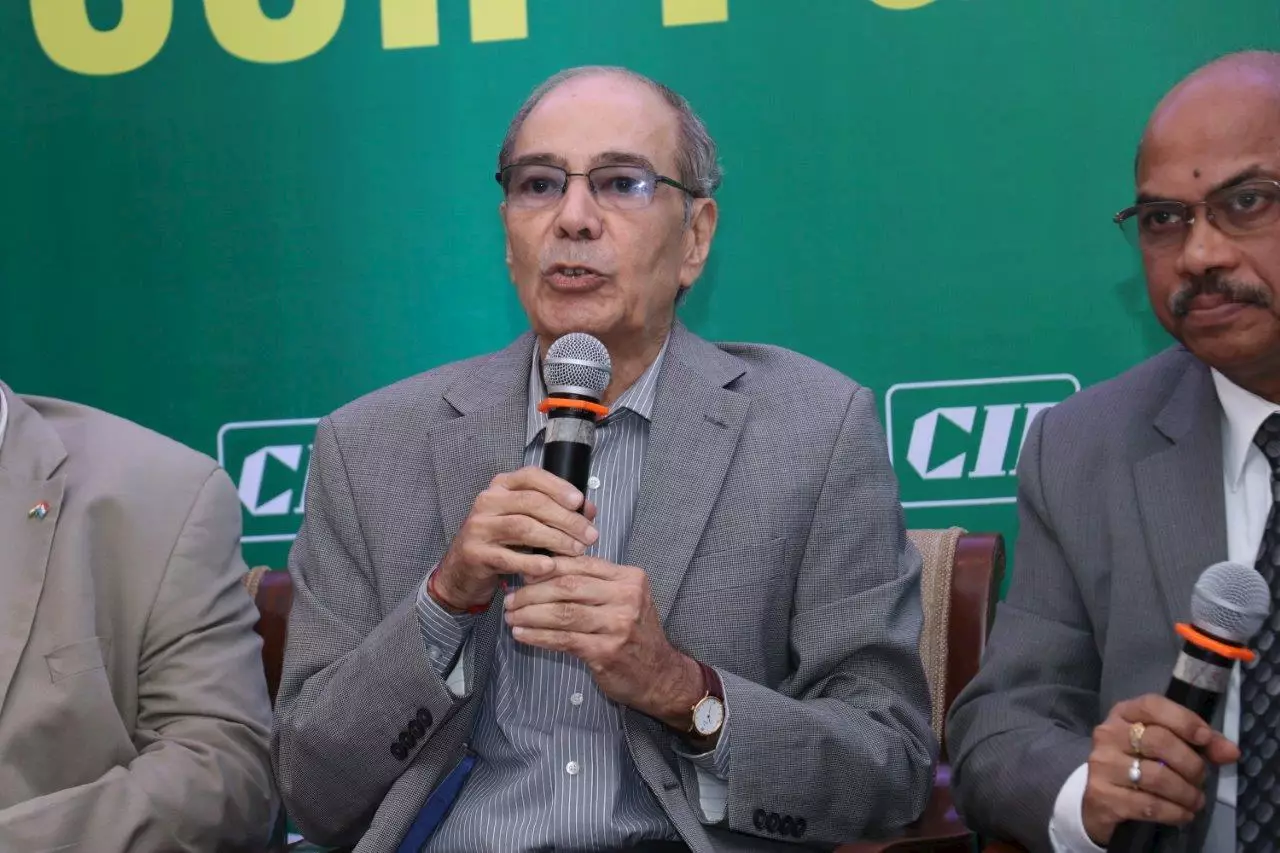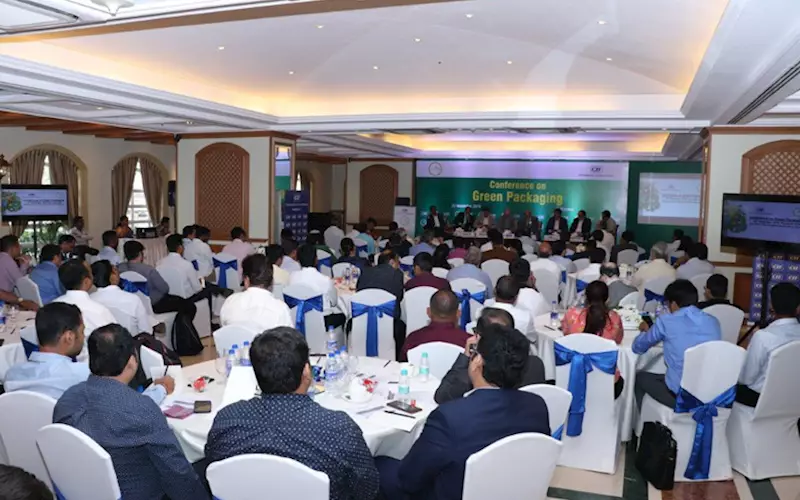CII's conference on green packaging looks at EPR
On 22 November 2018, the GreenCo & Environment Council of CII – Godrej GBC, Hyderabad hosted a conference at Taj Lands End, Mumbai. The main aim of the conference was to promote green practices in industry. More than 120 packaging technologists, brand heads and green packaging evangelists attended the event which encouraged industries to adopt best practices.
23 Nov 2018 | By WhatPackaging? Team
The main focus of this conference was to deliberate on the implementation of EPR for plastic packaging and facilitate implementation of green packaging strategies. The morning session saw a panel discuss the challenges and opportunities in the implementation of Extended Producers Responsibility (EPR) in packaging.

(l) KG Ramanathan, president, ICPE and NC Saha, director, IIP
KG Ramanathan, the president, Governing Council of Indian Centre for Plastics in the Environment (ICPE) emphasised on the importance of Packaging Waste Management Rules, which will ensure all kinds of packaging are brought under the umbrella of regulatory norms, rather than Plastic Waste Management Rules for the country. He mentioned the problem of plastic waste cannot be solved unless the solutions on increasing public awareness, developing complete solid waste management organization, improving source segregation are worked out.
Sridhar J, head packaging, Marico Limited put forward three-pronged strategies – a reduction of polymers, recycling on polymers, and increasing use of monolayer packaging – adopted by Marico Limited to achieve its packaging reduction targets. However, he also pointed the wider acceptability of monolayer packaging over multi-layer packaging depends on the economic business sense of monolayer packaging.
Raju Kalgutkar, DGM Packaging, pointed out how Piramal has been focusing on creating awareness on the environmental impact of efficient packaging design and has adopted tools to evaluate the environmental impact of packaging at the design stage.
KN Rao, Director (Energy & Environment), ACC Limited, emphasized waste cement plastic bags are reused multiple times before being recycled to produced plastic granules, which are again used for the production of cement bags. ACC Limited focuses on the usage of mobile silos, usage of bio-polymer based plastic bags and development of end-use management of plastic bags to achieve its Green Packaging objectives.
Peres Billimoria, founder and CEO of Earthsoul India, was a pioneer to bring bioplastics in India. He outlined how bioplastics can be used as a tool to beat plastic pollution and encouraged industries to adopt biodegradable packaging
Ramu Ramanathan, editor, PrintWeek India elaborated on how lessons from Mahatma Gandhi can redefine the plastic waste management strategies and take back schemes in the 21st century. In his talk, he walked the audience through the challenges faced by the ragpickers and waste collectors, and he emphasised on the inclusion of ragpickers in plastic waste management. He pointed out how on 31 December 2017, when China put a halt to a lot of the plastic waste - like single-use soda bottles, food wrappers, and plastic bags — that country had 5,000 recycling companies with 10 million people working in the industry. He said, "Our numbers don't add up. Already mixed paper and polymers are languishing at recycling plants across the Western world. By 2030, the Chinese ban might leave 111 million MT of plastic trash with nowhere to go."
Today, the packaging sector in India is growing at the rate of 14-15 % and likely to double in the next few years. Packaging is a coordinated system of preparing goods for safe, cost-effective, and efficient movement throughout the supply chain. The flip-side of the growth is that it demands more material and poses a larger problem of waste management. The need of the hour is to focus on more efficient and green packaging concepts to reduce the negative impact of packaging. This could include disruptors like Scrapo - an online marketplace that matches buyers and sellers of second-hand polymers in different countries. Since its inauguration in November, suppliers have posted offers to sell 1.5-million tonnes of recovered plastic on Scrapo.
Right now, the industry is a bit perplexed with the complexity of rules and regulations and notifications. There is no information and lack of proper structure - and the full scope and consequence of China's new multi-faceted scrap import policy still aren't fully understood. The conference attempted to look at some of these concerns through best practices and technologies in packaging optimisation, as well as case studies and success stories.
NC Saha, director of Indian Institute of Packaging (IIP), concluded, "the need of the hour is to exchange technical expertise on EPR and ensure there is better working arrangements to foster cooperation between the brands, converters, suppliers, the design community and institutions."











 See All
See All